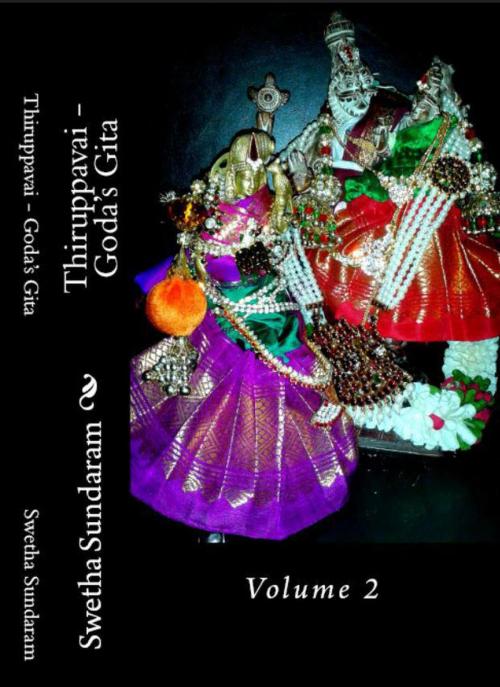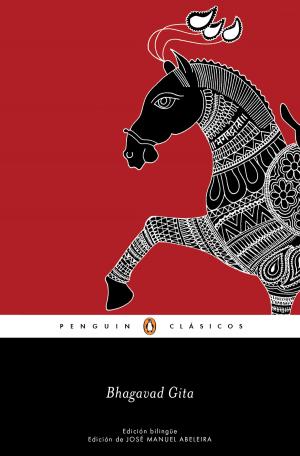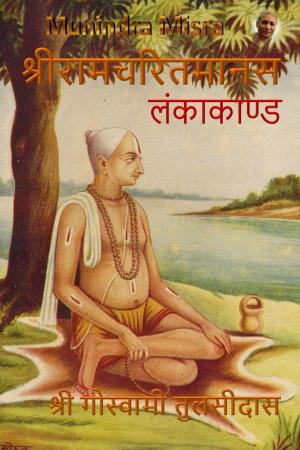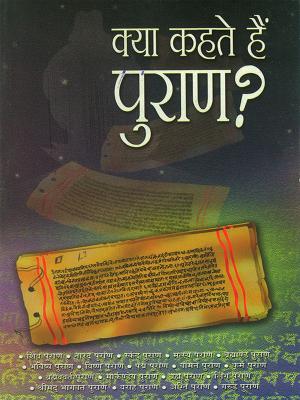Thiruppavai – Goda’s Gita
Thiruppavai - Goda's Gita, #2
Nonfiction, Religion & Spirituality, Eastern Religions, Hinduism| Author: | Swetha Sundaram | ISBN: | 9781721766093 |
| Publisher: | Swetha Sundaram | Publication: | August 13, 2018 |
| Imprint: | Language: | English |
| Author: | Swetha Sundaram |
| ISBN: | 9781721766093 |
| Publisher: | Swetha Sundaram |
| Publication: | August 13, 2018 |
| Imprint: | |
| Language: | English |
Goda and her friends are ready to start the sacred ritual. When they arrive at the banks of the Yamuna, they notice that their ten friends are missing. They go in search of their ten friends.
The essence of ThiruppAvai is that ANDAL observed the month-long Paavai vratam to perform eternal service to Lord Krishna and gain the ultimate fruit of gaining Lord Krishna as Her husband.
Everyone should learn the essence of the Bagawad Gita but, with over 700 slokams in the Bagawad Gita, it's not an easy text to study; but, what if there was a simpler way to learn the Bagawad Gita? Thiruppavai - Goda's Gita offers an easier way to learn the essence of the Bagawad Gita.
The Thiruppavai is an anthology, part of the Tamil Vedas called 4000 Divya Prabandhams. It was composed by Andal (Goda Nachiar) who is none other than Goddess Bhumi Devi. ThiruppAvai has 30 Paasurams and it is eulogised as GodhOpanishad since it summarizes the sacred meanings of the Upanishads in just 30 verses.
The author has brought out the commentary of the Godopanishad in the format of a novel â conversation between Goda and her friends. The commentary is based on formal lectures attended by the author.
Goda and her friends are ready to start the sacred ritual. When they arrive at the banks of the Yamuna, they notice that their ten friends are missing. They go in search of their ten friends.
The essence of ThiruppAvai is that ANDAL observed the month-long Paavai vratam to perform eternal service to Lord Krishna and gain the ultimate fruit of gaining Lord Krishna as Her husband.
Everyone should learn the essence of the Bagawad Gita but, with over 700 slokams in the Bagawad Gita, it's not an easy text to study; but, what if there was a simpler way to learn the Bagawad Gita? Thiruppavai - Goda's Gita offers an easier way to learn the essence of the Bagawad Gita.
The Thiruppavai is an anthology, part of the Tamil Vedas called 4000 Divya Prabandhams. It was composed by Andal (Goda Nachiar) who is none other than Goddess Bhumi Devi. ThiruppAvai has 30 Paasurams and it is eulogised as GodhOpanishad since it summarizes the sacred meanings of the Upanishads in just 30 verses.
The author has brought out the commentary of the Godopanishad in the format of a novel â conversation between Goda and her friends. The commentary is based on formal lectures attended by the author.















